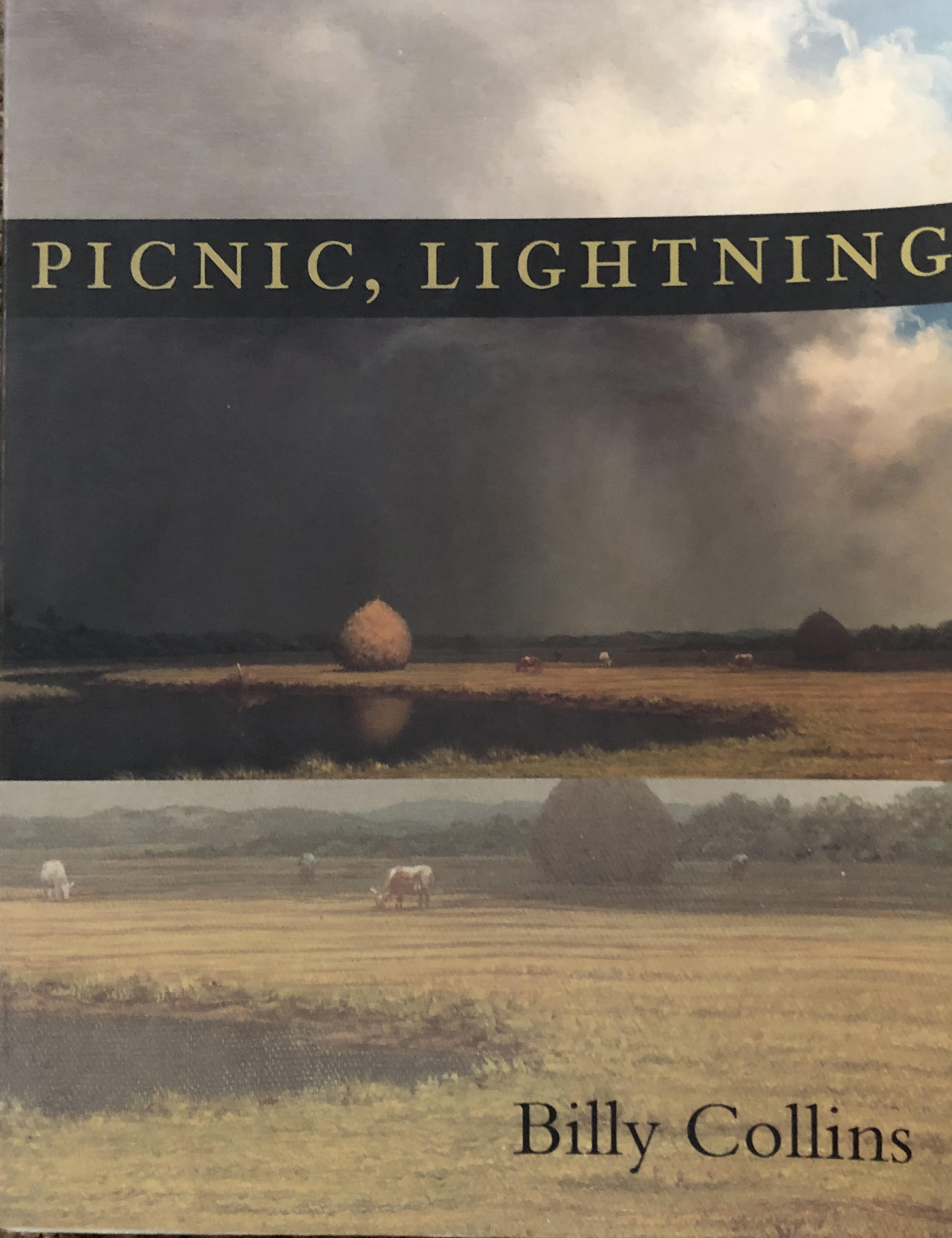Aware that the phrase “picnic lightning” is from Nabokov’s Lolita, Collins emphasizes happenstance and stresses the notion that life is a pattern of growth and decay and growth. Humbert’s ‘picnic lightning” is associated with his dead mother, sexual obsessions, and murder. Collins is softer and more accessible makes his thoughts a meditation on gardening. Collins writes, “the instant hand of Death/ always ready to burst forth from the/sleeve of his voluminous cloak.” But he’s not fearful. As in gardening, As every gardener knows, the dead matter in garden compost, always bursting with the promise of life.
Collins is disinterested in picnic food.
Featured image: The cover images by Martin Johnson Heade are unpicknicky and without lightning.
See Vladimir Nabokov. Lolita. New York: Random House, 1955; Billy Collins. “Picnic, Lightning.” In Picnic, Lightning. Pittsburgh: University of Pittsburgh Press, 1997
Picnic, Lightning
It is possible to be struck by a
meteor or a single-engine plane while
reading in a chair at home. Pedestrians
are flattened by safes falling from
rooftops mostly within the panels of
the comics, but still, we know it is
possible, as well as the flash of
summer lightning, the thermos toppling
over, spilling out on the grass.
And we know the message can be
delivered from within. The heart, no
valentine, decides to quit after
lunch, the power shut off like a
switch, or a tiny dark ship is
unmoored into the flow of the body’s
rivers, the brain a monastery,
defenseless on the shore. This is
what I think about when I shovel
compost into a wheelbarrow, and when
I fill the long flower boxes, then
press into rows the limp roots of red
impatiens — the instant hand of Death
always ready to burst forth from the
sleeve of his voluminous cloak. Then
the soil is full of marvels, bits of
leaf-like flakes off a fresco,
red-brown pine needles, a beetle quick
to burrow back under the loam. Then
the wheelbarrow is a wilder blue, the
clouds a brighter white, and all I
hear is the rasp of the steel edge
against a round stone, the small
plants singing with lifted faces, and
the click of the sundial as one hour
sweeps into the next.

